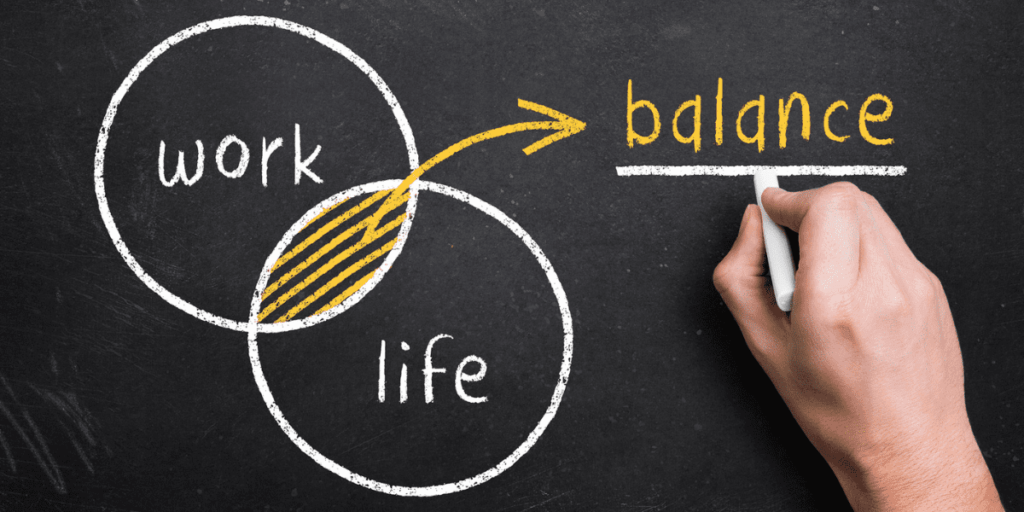In today’s fast world, achieving a proper work-life balance is becoming increasingly difficult. With the increasing demands of work and personal life, it’s easy to get caught up in the endless cycle of stress and burnout. However, building better work-life balance is crucial for leading a healthy and fulfilling life.
To build better work-life balance, one needs to prioritize their physical, mental, and emotional well-being. This involves setting boundaries, managing time effectively, and finding ways to recharge and rejuvenate. It also means cultivating positive relationships, pursuing hobbies and interests, and engaging in meaningful activities that bring joy and satisfaction.
The benefits of building better work-life balance are immense. It can lead to improved health, greater job satisfaction, better relationships, and a sense of purpose and fulfillment in life. It can also help prevent burnout, which can have serious consequences on one’s mental and physical health, as well as their professional and personal life.
This article will explore some practical tips and strategies to help you build better work-life balance and avoid burnout. By implementing these tips, you can achieve a healthier and more balanced lifestyle, both at work and in your personal life.
Table of Contents
How to Avoid Burnout as a Remote Worker

Step 1: Structure your day and stick with it.
My routine starts with an all-hands meeting where I discuss what needs to be done for the day. At the end of the day, I do another meeting to report on how it’s going, and if necessary re-assign tasks.
This structure keeps me focused because when I’m working at home by myself, it’s easy to get lost in internet rabbit holes.
Step 2: Set office hours and no-internet zones.
Be proactive about keeping your work time separate from your home time. Before I started doing this, my wife felt that I wasn’t prioritizing family time enough because I was always tethered to the internet.
This is why setting office hours was necessary. At first, it felt like I was working more, but I quickly realized it made me much more efficient.
Having designated hours to do laundry, run errands, get groceries, and do other things you can’t get done at home is essential.
Step 3: Stay healthy.
Working from home can be pretty sedentary. If left unchecked this will lead to health problems. I work from a standing desk which makes it easier to stay active. I also try and walk around every 30 minutes or so. Being in nature is another good way to recharge and get the blood flowing again.
Not everyone can do this, but if you can find a way to incorporate activity into your day, even if it’s just walking around for a few minutes, it will make a huge difference.
Step 4: Take regular breaks.
Working from home is awesome because there are no distractions from colleagues and you can get an obscene amount of work done. However, this means that there are not as many social interactions which can be draining.
To stay energized throughout the day, take a break every 4-5 hours to spend time with your family or friends. You’ll return to work refreshed and ready to be more productive again.
Step 5: Find ways to blow off steam.
After a long day at work or dealing with personal responsibilities, it’s important to have ways to blow off steam and release stress. Finding healthy outlets for stress relief can help prevent burnout and improve overall well-being. Here are some ways to blow off steam:
- Exercise: Exercise is a great way to release stress and boost endorphins, which can improve mood and reduce stress levels. Even a short walk or stretching session can make a big difference.
- Hobbies: Engaging in hobbies or activities that bring joy and relaxation can be a great way to blow off steam. Whether it’s painting, reading, or playing an instrument, finding time for hobbies can help reduce stress and improve well-being.
- Socializing: Spending time with friends and family can provide a much-needed break from work and responsibilities. Socializing can help boost mood, reduce stress, and provide a sense of connection and support.
- Mindfulness practices: Mindfulness practices, such as meditation or yoga, can help calm the mind and reduce stress levels. These practices can also improve focus and clarity, which can be beneficial for work and personal life.
- Self-care: Taking care of oneself is crucial for maintaining good mental and emotional health. Self-care activities can include getting enough sleep, eating healthy foods, taking breaks throughout the day, and doing things that bring joy and relaxation.
By finding healthy ways to blow off steam and release stress, individuals can improve their overall well-being and prevent burnout. It’s important to prioritize self-care and make time for activities that bring joy and relaxation.
Conclusion
Building a better work-life balance and avoiding burnout are essential for maintaining a healthy and fulfilling life. It requires a conscious effort to prioritize and balance the different aspects of one’s life, including work, family, social life, and personal interests.
To achieve a better work-life balance, it is important to set clear boundaries between work and personal time, establish a routine that allows for regular breaks, and make time for self-care activities like exercise, meditation, or hobbies. It is also important to communicate effectively with colleagues and employers about workload and expectations and to seek support when needed.
Preventing burnout requires recognizing the signs of exhaustion, such as chronic fatigue, cynicism, and reduced productivity, and taking steps to address them before they escalate. This may involve adjusting the workload, seeking professional help, or taking a break from work altogether.
We hope you enjoyed this article; To get exclusive content like this sent straight to your email inbox, subscribe to our email newsletter.

